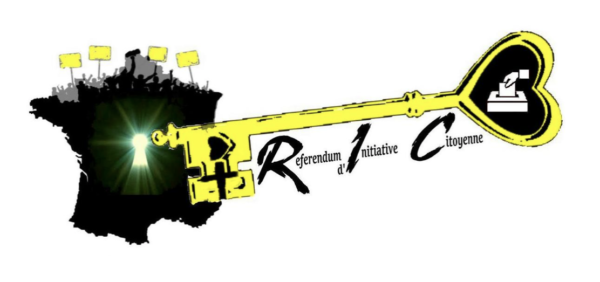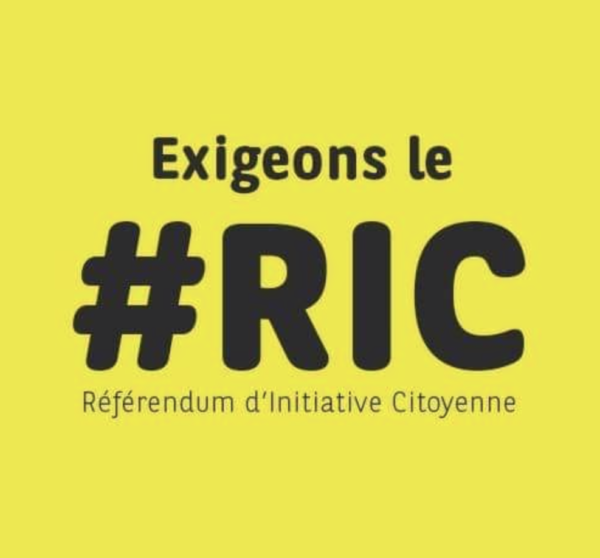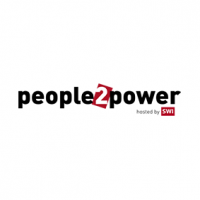After months of angry protests by the so called yellow vests French president Emanuel Macron this week opens a government-initiated "public conversations" (" Grand début national") series the country, addressing issues like taxes, public services and direct democracy. But this is a rather helpless attempt to win back the political initiative, suggests Christophe Premat.
The symbol of yellow vest protest is associated with road emergency. The yellow vest is a security signal that people use to be visible on the road when they have to help somebody.
The first day of the yellow vest protest was on November 17 with a series of demonstrations across the country by blocking street roundabouts. The national government reacted in a very repressive way and did not engage in any conversations on fuel tax, minimum wage, public service efficiency or direct democracy at this stage.
The yellow vest protests were from the beginning focusing on putting pressure on the government to amend the budget. At the same time, the protesters also expressed their deep mistrust into the current political systems and the different parties at hand. That is the reason why the protesters often express their request for the possibility of financial referendums in France.
Three weeks after the start of the protest movement French president Emanuel Macron announced on December 10 the cancellation of taxes and the increase of minimum wages. The demonstrations diminished but did not cease as they still enjoy the support of many people. The problem is that the government condemns the violence of these demonstrations but unconsciously legitimizes them as it reacts to yellow vests´ protests after the violent demonstrations. On December 8, the government mobilized almost 90´000 policemen to control the protests across the country. It is very rare to observe the mobilization of more than 89.000 policemen and security forces for the demonstration of the 8thof December.

The question of the popular initiative in France
"No taxation but better representation", demand the yellow vests´ protesters. In the National Assembly elected in 2017 an urban elite close to president Macron is well-represented, but only a few MPs are representing the underprivileged rural districts. Now the yellow vests are protesting against the current tax system works. The protesters do not understand why they have to contribute so much to the state, when they do not get back anything from it. Here you can see similarities to the 1978 tax revolution in California, where finally a citizens initiative(Proposition 13) reshuffled the taxing powers in the most populated US-state.
But as the French do not have an instrument like the Californian citizens´ initiative right at hand, many protesters are just demanding this: the constitutional right to put forward a question on the political agenda and the right to get an answer in a popular vote.
In recent Parliament deliberations on constitutional amendments all genuine proposals for citizens initiated popular vote procedures have been rejected. The reason: political oligarchs fear people power. At the same time, it reveals an extreme undemocratic situation in France where the political class just defends the representative government without paying attention to other tools than elections. No discussion on the principle of referendum or on how it could be possible to introduce modern direct democracy. You need to go back to the of the 1970s, when initiatives and referendums were tested on the local level across France. In the municipality of Mons-en-Baroeul (close to Lille in Northern France), then mayor Marc Wolf introduced popular referendum votes on local taxes. Citizens were invited to decide on the level of taxation and normally did not opt for the lowest levels of taxes. Instead the direct democratic procedures helped to educate everybody involved in how local policies are related to certain taxing levels.
built and financed by the municipality(Premat, C. (2018), "Initiatives and referendums". In: Gabriel, Keil, Kerrouche (eds.), Political Participation in France and Germany. Essex, EPCR Studies, 180).
Half-hearted reforms leave everybody unhappy
Since 2003 there are some provisions in the French constitution for some weak forms for citizens initiated popular votes on issues at all subnational levels in France. However, such initiatives are often not respected by the elected bodies - and if they are, results are only seen as binding if an absolute majority of all eligible citizens are in favor.
On the national level a reform during the presidency of Nicolas Sarkozy provides one tenth of the registered voters with the right to co-initiate a citizens initiative together with one fifth of the parliament. Of course, it has never been applied due to this high hurdles. In his December 10 address, President Macron launched the proposal for a nationwide conversation organized by mayors - including a feature of direct democracy, an issue Macron has never shown any interest before.
Instead Macron was elected to concretize the economic reforms that were not made before his election and that explained the high rate of unemployment in France. 18 months after his election, President Macron already failed in his mandate to create a balance between economic growth and social protection. Why is it so hard to govern in France? Emmanuel Macron reached just 23% of the votes in the first round of the Presidential election in 2017. The second round he won clearly as his challenger was Marine Le Pen from the far-right Front National. Then Macron got a strong backup in parliament, where his movement En Marche got a majority in the June 2017 election.<
But very fast, Emanuel Macron lost a lot ground as he became a remote Jupiter-style emperor behaving with a lot of social arrogance - by for example questioning the role of social support to poor families or declaring to a unemployed person he met, that he could find a job on the other side of the street. In another instance, he humiliated a young man who addressed to him in an impolite manner. As he started to feel the weaknesses of such an approach, he gave some lengthy interviews justifying his reforms. On other topics, President Macron seemed to give some legitimacy to lobbies. His ecological reforms were weak with a step back when the government decided to extend the period of use of glyphosate. Nicolas Hulot, the very popular environment minister, quit the government last autumn as he felt incapable to deliver any solutions about climate change. The government then announced that it would increase the gas tax, a pretext to the latter yellow vests´ protests. The movement reveals a clash of social classes. The increase of real estate prices and rents in France excluded many people from the central part of metropolitan areas. Contrary to what is often written by analysts the yellow vests protest is not a revolt from rural areas against cities, but a revolt of people which are not feeling represented any more in the current tax regime.

High time to grow up
After all the current situation displays a deep democratic crisis in France, a crisis which is expressed by a fundamental mistrust against any form of representative government. 50 years ago then president de Gaulle faced the student protests of May 68: he dissolved the National Assembly and held a national vote one year later on fundamental changes of the French constitution. Todays´ president is reluctant about the referendum option which is one of the expressions of national sovereignty according to the Constitution of the 5thRepublic. More and more French citizens want to have a say in the way taxes are decided, the yellow vests protest is a political movement, it cannot be addressed with some superficial government sponsored debates, some short-term financial reactions or the exercise of state violence against the protesters. It is time for France to become a genuine modern democracy.
Christophe Premat is Associate Professor for Political Science at Stockholm University and a former Member of the National Assembly (Illustrations by https://www.giletsjaunes-coordination.fr/documents.html?categorie=1)




